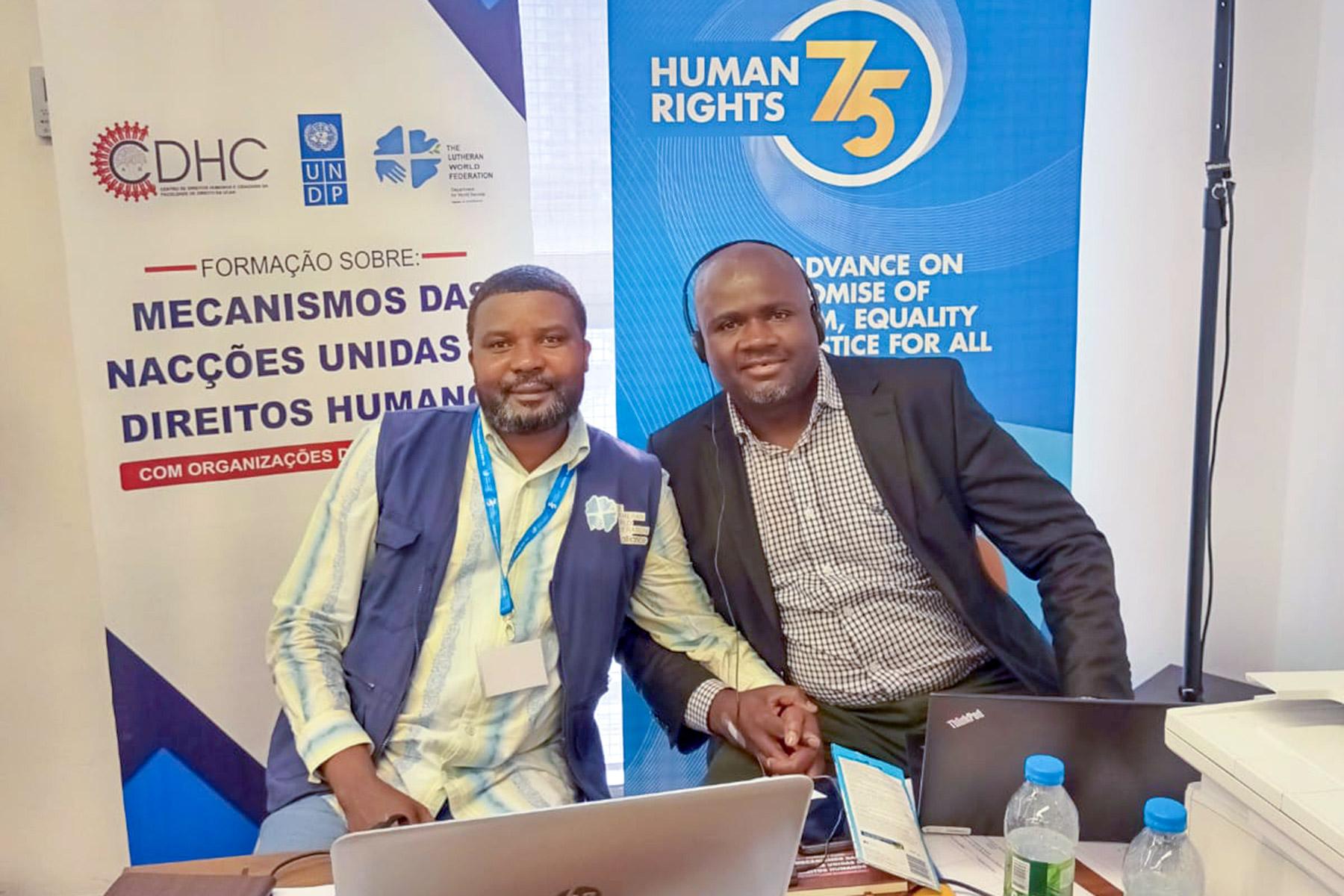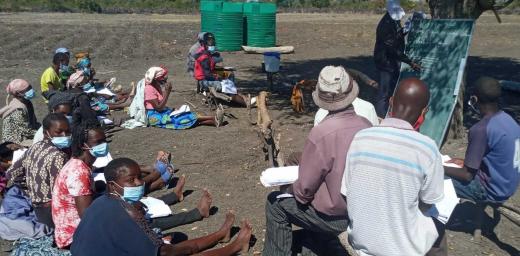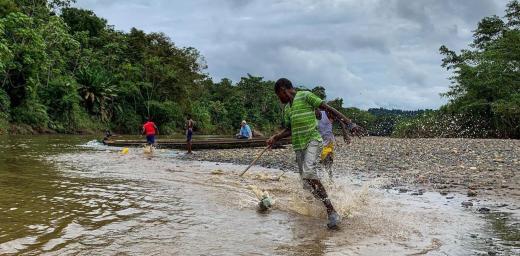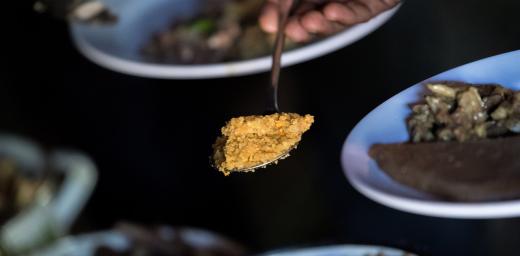LWF partners with UN and Catholic University of Angola to train and strengthen work of human rights advocates
(LWI) - Human rights defenders from around Angola gathered in the capital, Luanda, recently for a training session on how to engage with United Nations mechanisms to protect vulnerable communities from exploitation and land grabbing. The event was organized by the Lutheran World Federation (LWF) in partnership with the Catholic University of Angola and the UN Office of the High Commissioner for Human Rights (OHCHR) in southern Africa.
Among those facilitating the 25 to 27 July training was Sabino Calucango, Program Advocacy Officer with LWF in Angola. He has spent the past decade and a half working to protect local farmers from foreign investors seeking to exploit land that is rich in minerals, including gold, diamonds, copper and manganese.
Land is life for people in village communities
– Sabino Calucango, Program Advocacy Officer with LWF in Angola
Growing up in a rural village, Calucango learned first-hand about the importance of land ownership for farming communities. Forced to flee, as a child, to neighboring Democratic Republic of Congo during Angola’s long-running civil war, he also saw how the loss of their land made families more vulnerable to other injustices and abuses. “Land is life for people in village communities,” he says, “it is their security, their dignity, a sacred place.”
Under Angolan law, land grabbing is illegal and local farmers must be consulted by investors wanting to lease their land. In practice, however, high levels of illiteracy mean that villagers are often not able to access information and are unaware of their rights as legal owners of the land. “Lack of knowledge causes suffering, but we have the tools to overcome that,” says Calucango.
From local to global level
Since 2015, LWF has been supporting human rights activists in Angola, linking local and national civil society partners with international advocacy mechanisms, such as the UN’s Universal Periodic Review which examines the human rights records of all UN member countries. The July training for 40 Angolan human rights defenders was part of that effort to build capacity, enabling them to respond more effectively to the growing threat of land grabbing and the silencing of civil society voices.
The event followed on from a December 2022 online training session organized by LWF, together with the Geneva headquarters of the UN High Commissioner for Human Rights. Ester Wolf, LWF’s Advocacy Officer for Human Rights, said: “We have been working for many years to strengthen the actions of our partners in Angola and we were happy to cooperate with the UN in southern Africa and with the Catholic University’s Centre for Human Rights in expanding this work.
Reflecting on the outcomes of the July training in Luanda, Calucango noted that “in the past, human rights defenders have been unable to resolve cases at local or national level. By facilitating connections with the High Commissioner for Human Rights in southern Africa and sharing ways of taking these cases to the global level, we can help to find solutions and protect the land for future generations.”






